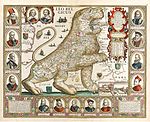User:Mak211/sandbox
| History of Belgium |
|---|
 |
|
Timeline |
Practising Citations[edit]
Belgium came to the forefront of LGBT-friendly nations despite being relatively conservative. [1]
Between 1999 and 2007 the LGB (lesbian, gay and bisexual) community made three important demands; to introduce an anti-discrimination law, open civil marriage to same-sex partners and open adoption for same-sex partners. [2]
FHAR (Homosexual Front for Revolutionary Action) became an active LGBT advocate group in France, also influencing the French-speaking Belgium and figures such as Bernard Lanssens and Bob Gérard. They then started their own militant gay group in Belgium. [3]
The LGBT community in Belgium did face issues such as verbal aggression which was experienced by 60% of LGBT respondents. [4]
LGBT members and refugees are able to connect and learn from social media. [5]

Answers to Module 7 Questions[edit]
- Describe your media
- It is a digital illustration of the LGBT flag, downloaded as a JPEG file.
- Is it your own work?
- Yes
- What is the file format?
- JPEG.
- What license have you chosen?
- Public domain license
- What category/gallery will you add it to?
- Category:LGBT, Category:History
- How will you describe the file?
- Digitally created rendition of the LGBT flag, symmetrical with all 6 colours displayed, representing the lesbian, gay, bisexual, transgender (LGBT) and queer communities and pride.
References[edit]
- ^ Eeckhout, Bart; Paternotte, David (2011-09-01). "A Paradise for LGBT Rights? The Paradox of Belgium". Journal of Homosexuality. 58 (8): 1058–1084. doi:10.1080/00918369.2011.598414. ISSN 0091-8369. PMID 21902492.
- ^ Borghs, Paul; Eeckhout, Bart (2010-04-01). "LGB Rights in Belgium, 1999–2007: A Historical Survey of a Velvet Revolution". International Journal of Law, Policy and the Family. 24 (1): 1–28. doi:10.1093/lawfam/ebp013. ISSN 1360-9939.
- ^ Borghs, Paul (2016). "The Gay and Lesbian Movement in Belgium from the 1950s to the Present". QED: A Journal in GLBTQ Worldmaking. 3 (3): 29–70. doi:10.14321/qed.3.3.0029. ISSN 2327-1574.
- ^ Danish Institute for Human Rights (March 2009). "The social situation concerning homophobia and discrimination on grounds of sexual orientation in Belgium" (PDF). European Union Agency For Fundamental Rights.
- ^ Dhoest, Alexander (2019-08-20). "Digital (dis)connectivity in fraught contexts: The case of gay refugees in Belgium". European Journal of Cultural Studies. 23 (5): 784–800. doi:10.1177/1367549419869348. ISSN 1367-5494.

